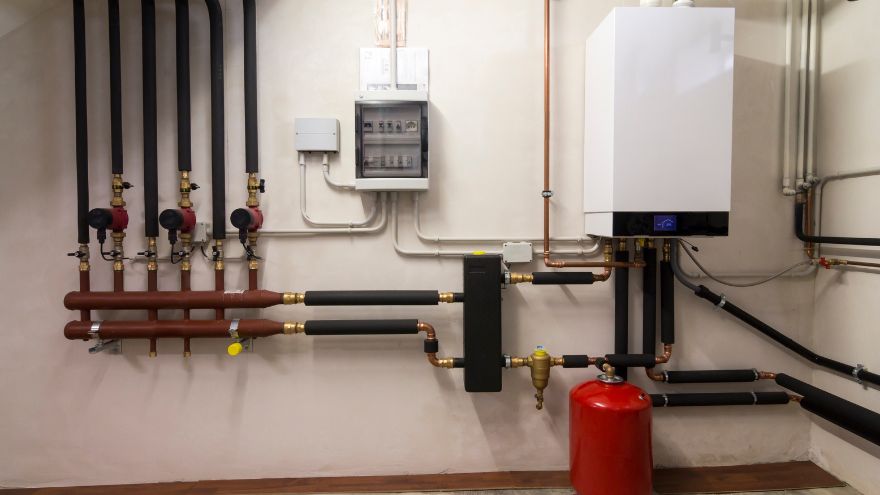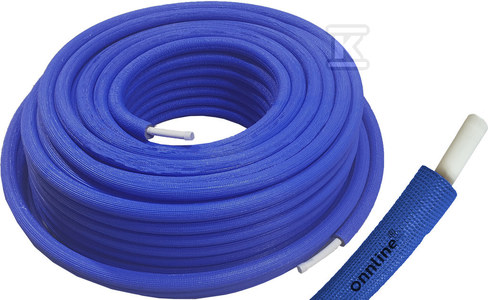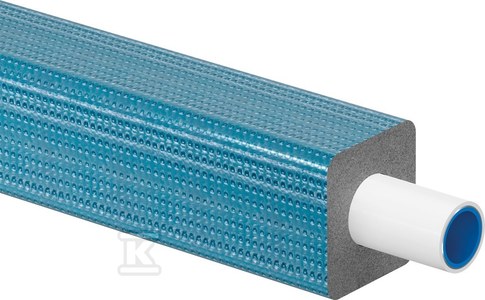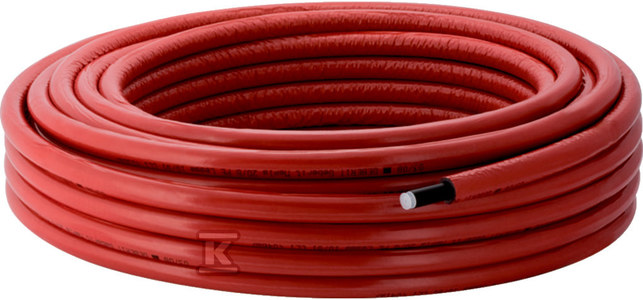An extremely important step is to properly insulate the pipes in the boiler room, which increases the efficiency of the furnace. This also translates into greater safety for household members. By using proper insulation, we reduce heat losses, reduce the risk of condensation and eliminate possible mechanical damage. As you can see, this is a very important task, so let's find out exactly what the pipe insulation in the boiler room should look like!

Check the coated pipes at the Onninen wholesaler
What are the advantages of insulating pipes in a boiler room?
There is no doubt about that  pipe insulation in a boiler room provides many benefits. They are economic and functional in nature. Let's get into the details. Why are lagged pipes a good idea?
pipe insulation in a boiler room provides many benefits. They are economic and functional in nature. Let's get into the details. Why are lagged pipes a good idea?
- First of all, this means a huge reduction in heat losses, thanks to which it is possible to maintain a higher temperature inside the pipes, reducing heat losses to the surroundings. The boiler works more efficiently this way because it consumes less energy, which of course translates into lower operating costs.
- Another advantage is protection against condensation that occurs when hot water or steam flows in the pipes. Insulation prevents this phenomenon, so moisture does not appear on colder surfaces. This is extremely important because condensate can lead to pipe corrosion as well as other serious problems.
- An important advantage of insulating pipes in a boiler room is also their protection against mechanical damage, such as impacts or abrasion. Thanks to this, the pipes are more durable and their shelf life is extended because they are less susceptible to failures.
What does proper insulation of pipes in a boiler room look like?
 As we can see, pipe insulation is very important, but for it to be correct, we must follow some of the most important rules.
As we can see, pipe insulation is very important, but for it to be correct, we must follow some of the most important rules.
Firstly, you need to choose the appropriate lagging, which is intended to effectively insulate the pipes. First of all, it should have the right density, because this will allow it to effectively reduce heat loss and additionally protect against condensation. Insulating materials such as mineral wool, polyurethane foam or fiberglass insulating boards are very suitable for this purpose.
Another important step is to thoroughly and tightly cover the pipes. The insulation must be distributed evenly over their entire length. The same applies to elements such as constrictions, joints and pipe bends. Therefore, it must be checked to ensure that no fragment is left without proper protection.
We also cannot forget about protecting the lagging, protecting it against moisture and mechanical damage. Protective coatings, such as aluminum coating or vapor barrier foil, are perfect for this purpose.
Which cover should I choose?
The choice of lagging is another key issue,  therefore, you need to take into account all the most important factors.
therefore, you need to take into account all the most important factors.
- One of them is the operating temperature, which means that the cover should be resistant to the high temperatures in the boiler room. Before purchasing a material, we must make sure that it is resistant and can cope with difficult thermal conditions.
- We must also take into account the boiler room environment, especially if there is a high risk of moisture, aggressive chemical substances or dangerous external factors. In such a case, you must choose a lagging with appropriate parameters to cope with these threats.
- We also cannot forget about the insulating properties. To do this, you need to check what parameters the cover has. This applies in particular to the thermal conductivity coefficient (λ). It determines the extent to which the insulating material reduces heat loss.
There is no doubt that proper insulation of pipes in the boiler room is really important. And in many respects, because it is responsible for higher energy efficiency, durability of the heating system and, of course, greater safety for users. The most important thing is to choose the right lagging to reduce heat loss, as well as limit condensation and protect the pipes against various mechanical damages. Before choosing a specific solution, it is worth consulting a specialist who will advise you what will be best in your situation.